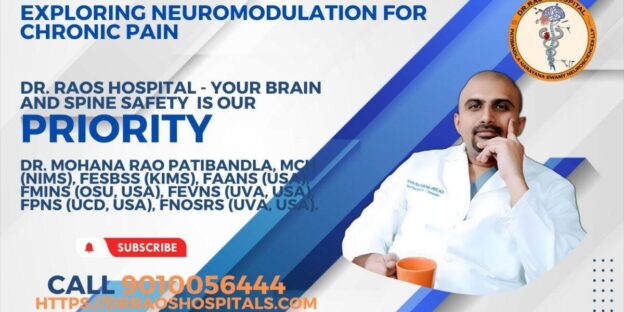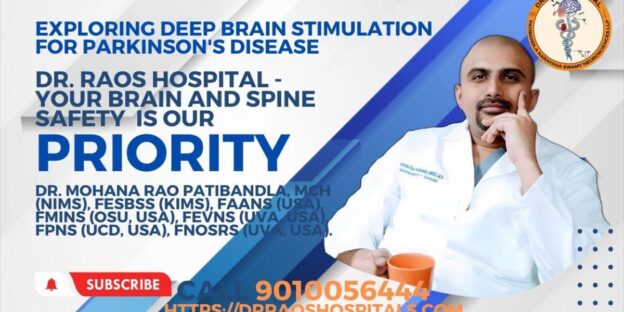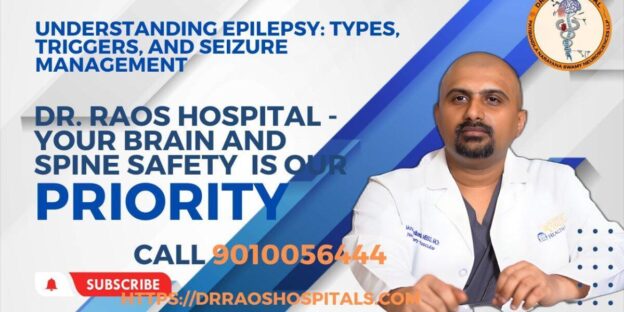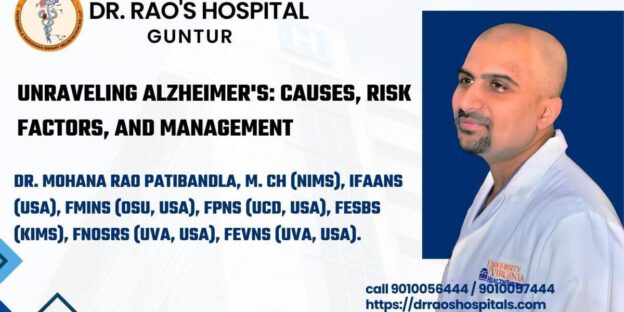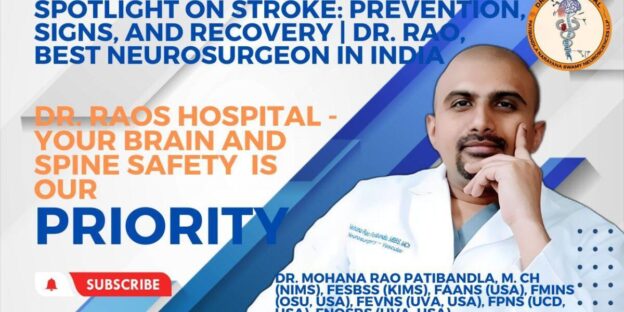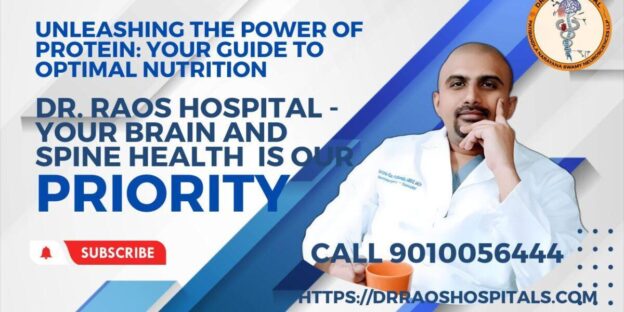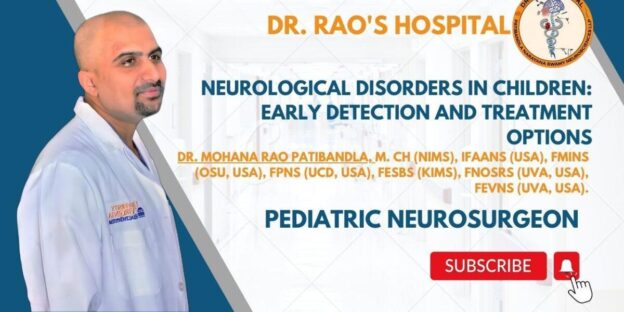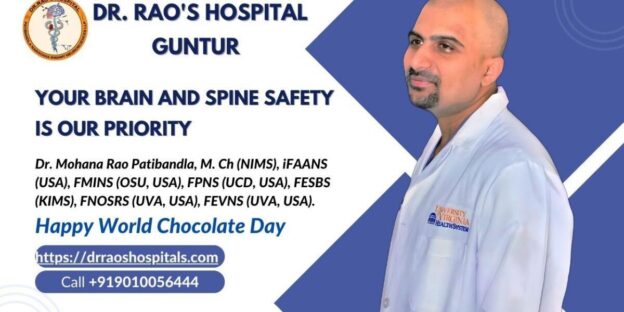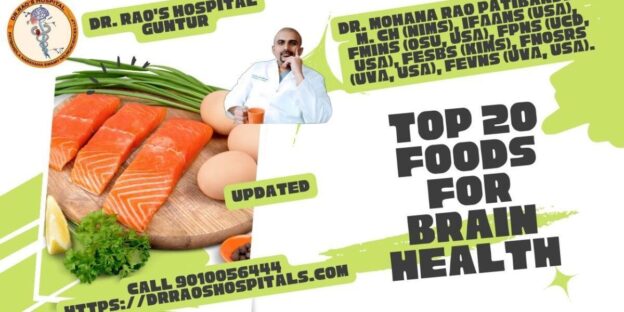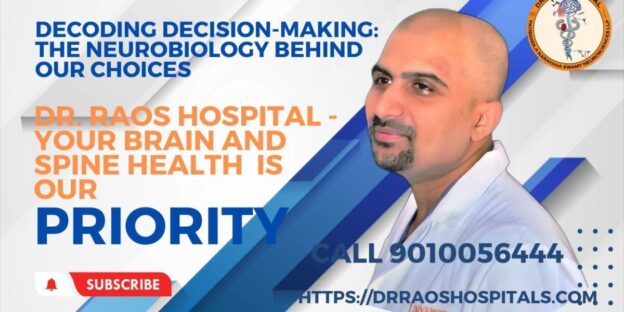Introducing Neuromodulation Therapies for Chronic Pain Management
Introduction
Chronic pain can be debilitating, affecting every aspect of one’s life. Traditional pain management methods may not always provide adequate relief, leaving individuals searching for alternative solutions. In recent years, neuromodulation therapies have emerged promising to manage chronic pain effectively. In this article, we will explore the benefits of neuromodulation therapies and the expertise of Dr. Rao, the renowned neurosurgeon at Dr. Rao’s Hospital, who specializes in providing innovative and effective pain management solutions.
Understanding Neuromodulation Therapies
Neuromodulation therapies involve targeted electrical stimulation to modulate the nervous system’s activity, relieving chronic pain. Depending on the source of the pain, these therapies can be tailored to specific areas of the body, such as the spinal cord, peripheral nerves, or brain. By disrupting or altering pain signals, neuromodulation therapies provide significant pain relief and improve the quality of life for individuals suffering from chronic pain.
Methods of Neurostimulation for Chronic Pain Management
- Spinal Cord Stimulation (SCS): Spinal cord stimulation involves the implantation of a small device, often referred to as a spinal cord stimulator, near the spinal cord. This device delivers low-level electrical impulses to the spinal cord, interfering with transmitting pain signals to the brain. Spinal cord stimulation is commonly used to manage chronic back and leg pain and certain neuropathic pain conditions.
- Peripheral Nerve Stimulation (PNS): Peripheral nerve stimulation targets specific peripheral nerves responsible for transmitting pain signals. Small electrodes are placed near the affected nerves, and electrical stimulation interrupts the pain signals before they reach the brain. Peripheral nerve stimulation is often used for localized pain conditions, such as peripheral neuropathy or chronic regional pain syndrome.
- Deep Brain Stimulation (DBS): Deep brain stimulation involves the placement of electrodes deep within specific brain regions. These electrodes deliver controlled electrical impulses to modulate abnormal neural activity and alleviate pain. Deep brain stimulation is typically utilized for chronic pain conditions that have not responded well to other treatment options, such as certain types of facial pain or central neuropathic pain.
- Transcutaneous Electrical Nerve Stimulation (TENS): TENS is a non-invasive form of neurostimulation that utilizes a portable device to deliver electrical impulses through the skin to the affected area. Electrical stimulation helps to reduce pain by stimulating the nerves and releasing endorphins, the body’s natural pain-relieving chemicals. TENS is commonly used for various types of chronic pain, including musculoskeletal pain and neuropathic pain.
- Occipital Nerve Stimulation (ONS): Occipital nerve stimulation involves the placement of electrodes near the occipital nerves located at the back of the head. These electrodes deliver electrical stimulation to alleviate chronic headaches, including migraines and cluster headaches. Occipital nerve stimulation can significantly relieve individuals not responding well to other treatment options.
It’s important to note that the selection of the appropriate neurostimulation method depends on the specific type and location of the pain, as well as the individual’s unique circumstances. The decision to pursue neurostimulation for chronic pain management should be made in consultation with a qualified healthcare professional, such as a neurosurgeon or pain management specialist.
Meet Dr. Rao, Your Trusted Neurosurgeon
Regarding neuromodulation therapies for chronic pain management, Dr. Rao stands out as one of the best neurosurgeons in India. With extensive experience and expertise in the field, Dr. Rao has helped numerous patients regain control of their lives by providing personalized and effective pain management solutions. As a leading specialist at Dr. Rao’s Hospital, Dr. Rao is at the forefront of implementing the latest advancements in neuromodulation therapies, ensuring the best possible patient outcomes.
Comprehensive Approach to Chronic Pain Management
At Dr. Rao’s Hospital, patients receive comprehensive care for chronic pain management. Dr. Rao and his team believe in a patient-centric approach, taking the time to understand each individual’s unique needs and developing tailored treatment plans. Dr. Rao and his team utilize the most advanced techniques and technologies to deliver optimal results, whether spinal cord stimulation, peripheral nerve stimulation, or deep brain stimulation.
Restoring Hope and Quality of Life
The goal of neuromodulation therapies is not just to alleviate pain but to restore hope and improve the overall quality of life for individuals with chronic pain. By targeting the underlying mechanisms of pain and providing long-term relief, these therapies empower patients to regain independence, engage in activities they once enjoyed, and experience improved well-being.
Take the First Step toward Pain Relief
If you or a loved one is struggling with chronic pain, it’s time to explore the potential of neuromodulation therapies. Contact Dr. Rao’s Hospital at 9010056444 or visit https://drraoshospitals.com to schedule a consultation with Dr. Rao, the leading neurosurgeon in India. Dr. Rao and his team are committed to providing compassionate care and innovative solutions to help you find relief from chronic pain and rediscover a life of comfort and joy.
Conclusion
Neuromodulation therapies offer new hope for individuals living with chronic pain. With the expertise of Dr. Rao, the best neurosurgeon in India, and the advanced facilities at Dr. Rao’s Hospital, patients can expect comprehensive and personalized care for chronic pain management. Don’t let pain control your life any longer – take the first step towards a pain-free future by exploring neuromodulation therapies with Dr. Rao and his dedicated team.

